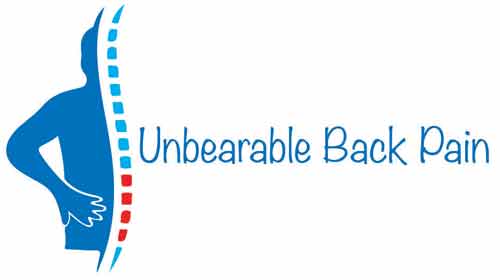
Extra pounds can play a role in the health of one’s back! There are no ifs or buts, the reality is that if you continue to put on weight, there’s a good chance you will sprain your back which can be a disaster for your spine’s health.
Your spine is quite a workhorse. It supports your body, facilitates movement, and encases the delicate spinal cord. It’s built to withstand a great deal, but not without limits. Carrying extra weight beyond what your body frame can handle comfortably can challenge your back’s sturdiness, leading to discomfort or pain.
The causes of back pain are numerous and can be brought about by injury, illness, or hereditary problems. But when it comes to weight gain, a few factors stand out. An increase in body mass can alter your center of gravity, leading to poor posture and placing undue stress on your back. Additionally, extra body fat, especially around the midsection, can tug your pelvis forward, straining the lower back. A sedentary lifestyle accompanying weight gain might also weaken back muscles, compounding the problem.
Health experts consistently link good back health with maintaining an appropriate body weight. But they also stress that abrupt or unexplained back pain should not be ignored. It’s essential for individuals noticing such changes to seek professional advice to rule out other potential causes.

Identifying Symptoms: When Weight Gain May Be Affecting Your Back
If you’ve put on extra pounds and notice a nagging sensation in your back, there might be a connection. Back pain can be the body’s way of signaling that the spine is under additional strain. It’s essential to recognize how and when weight gain may be influencing this discomfort.
The way back pain materializes can vary. Some common symptoms include a dull ache, a sharp or stabbing sensation, or discomfort when standing, sitting, or moving. If these symptoms develop in tandem with weight gain, it might be time to take your spinal health more seriously.
Seeking medical advice at this stage can’t be overstressed. Health professionals can help determine whether the weight gain is the root cause of your back pain or if there are other underlying issues at play. They might also provide valuable recommendations or refer you to a specialist.
Differentiating this specific cause of back pain from others is crucial for effective treatment. Misdiagnosing the source of the pain can lead to ineffective treatments and prolonged discomfort. A proper diagnosis could involve physical exams, medical history reviews, or imaging tests, and should ideally lead to a personalized management plan.
On the assumption that the root cause of your back pain is your weight, then it’s time to take preventative measures. By managing your weight effectively, you might not only alleviate your current back pain but also avoid potential future back issues.

Preventive Measures: Managing Weight to Avoid Back Pain
While it’s clear that carrying extra weight can contribute to back pain, your main focus should now shift to prevention. There are proactive steps you can take to help manage your weight and thereby reduce the risk of developing back pain.
A balanced approach to diet is a fundamental aspect of weight management. Consuming a variety of nutrients from fruits, vegetables, lean proteins, and whole grains can support overall health and help you maintain a healthy weight. Consulting with a nutritionist can provide tailored dietary recommendations suited to your individual health needs.
However, not everyone can access this type of advice, be it through a lack of support in your location or maybe it’s a financial issue. If this is the case (or maybe you are eager to experiment alone) then it could be you are ready to try an effective meal replacement shake. This is a tried and tested method to lose and maintain your weight. At the same time, you can have fun mixing and matching the ingredients you use, so it should never become boring like some diet programs that you may have tried in the past.
As well as being careful with your diet, regular exercise not only helps with managing weight but also strengthens the muscles that support your back. Consistency in activities such as walking, swimming, or cycling can be particularly beneficial.
At this stage, you may be worried at the thought of changing your habits which have probably become second nature. But the significance of making lifestyle modifications shouldn’t be glossed over. Simple habits such as maintaining good posture, using ergonomic furniture, and taking frequent breaks to stretch during sedentary activities can have a positive impact on your back health.
Integrating preventive health measures into daily life may take effort, but the rewards are substantial. By actively managing your weight, you’re also protecting your back, improving your mobility, and enhancing your quality of life.

Treatment and Recovery: Addressing Weight-Induced Back Pain
Managing weight-induced back pain sometimes calls for a multifaceted approach to care. This often means pulling together a team that might include dieticians, physiotherapists, and your primary care provider. These health professionals work in tandem, offering diet plans, physio routines, and medical oversight – a true team effort tailored to your personal needs.
As touched upon, you may not be in a financial position to employ such a team of professionals. (If you are, then go for it and don’t look back). But if I had to choose just one area to concentrate on, then physical therapy stands as a beacon of light for treating back pain owing to excess weight. Therapists can recommend exercises that strengthen the core muscles, which in turn support the spine, all while ensuring your movements do not exacerbate the pain. I’ve been there, and even though the lady in question is no longer with us, I still silently thank her daily.
The journey to recovery is markedly personal but you’re not alone. There are numerous success stories out there of individuals who turned the tide on back pain by successfully managing their weight. Their stories can be a source of motivation as you tackle your challenges.
Recovery is not just about short-term relief – it’s about securing your back’s future. Sustainable practices, consistent fitness routines, and a mindful approach to eating pave the way for lasting back health and pain prevention. Remember, small, consistent actions lead to significant differences over time.
Final Thoughts
Here’s a little transparency: Our website contains affiliate links. This means we may receive a small commission if you click and purchase. Don’t worry, there’s no extra cost to you. It’s a simple way you can support our mission to bring you quality back relief content.”


